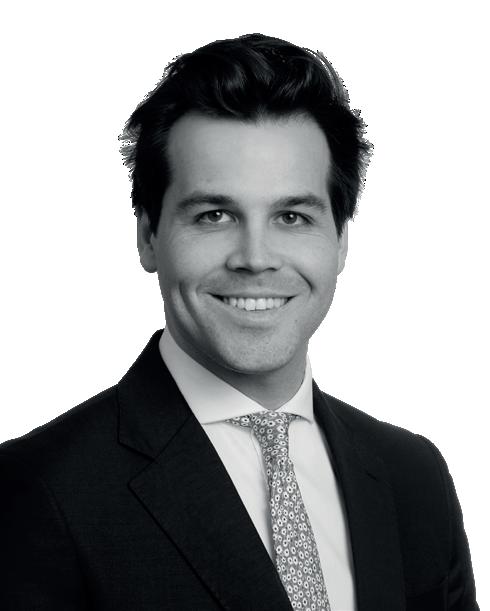

Opening up of the alts market to a wider audience.



Opening up of the alts market to a wider audience.
This edition looks at the democratisation of the alternatives industry, a trend that has been going on for a number of years and has accelerated recently. On this topic, we hear from Haynes Boone’s James Tinworth on how this has been gaining traction and the increased interest in Europe; similarly, PwC’s Mathieu Scodellaro and Jeremy Evans continue on this theme, with a look at recent developments. Moving away from legals to organisational structure, MUFG Investor Services COO, Mac Kirschner, writes about how firms are having to evolve their operations and businesses for the broader audience; while Fredriks Partners’ Max Heppleston wraps it up with a look at how firms are hiring to fill new roles. Changing tack, in Letter from America, Prosek’s Mark Kollar, looks at the fast growing use of NAV financing in the US.


March was another strong month for markets as central banks played ball, and for once, there were few negative surprises. To see further information for the month, click here. In this environment, the HFRI Fund Weighted Composite was up +2.5%, with Macro coming out on top, followed by the Equity managers.
The HFRI Equity Hedge (Total) Index returned +2.4%. At the front of the pack were the Energy/ Basic Materials managers, +3.8%, as energy prices rose on Middle Eastern stability concerns. Quant Directional, +3.2%, were close behind, as managers benefited from the central bank tailwind. Fundamental Value was up +2.9% and Healthcare +2.8% - it is worth noting that this year, the Healthcare Index is up an impressive +10.9%. For once, it was the Technology Index that lagged in this space, +0.7%, as tech stocks underwhelmed after months of rallying hard.
Event Driven managers also benefited from this environment, +2.2%, with Special Situations the best performing, +4.1%, followed by Event-Driven Directional, +3.1%. While all the sub-strategies were in the green, the under-performer was Merger Arbitrage, +0.6%, which is only sub-strategy in Event Driven to be in the red, year-to-date, down -0.3%.
For the first time in many months, Macro was the outperformer, up +3.9%. Trend Followers benefited, as they have through much of this year, with Systematic and Trend Following Directional Indices up +4.4% and +4.3%, respectively. Multi-Strategy was also up +3.9%, and Discretionary Thematic up +3.2%. Currencies were harder to profit from, with the Index up +0.4%.
Relative Value somewhat lagged the other strategies in March, with the HFRI Relative Value (Total) Index up +1.0%. At the front, Yield Alternatives was up +3.8%, followed by Fixed Income Convertible Arbitrage, +1.5%. At the back, the Volatility Index was one of the few sub-strategies down across the board, -0.4%.
No single region stood out in March, with positive returns across the board. LatAm was the bestperforming region, +2.3%, followed by North America, +2.2%. However, worth noting that India’s substantial gains from last year are becoming more subdued, +0.2% in March and +2.1% for the year.

Hunter Point Capital raised $3.3 billion for its first General Partner stakes fund. The New York based firm exceeded the initial $2.5 billion target, which makes it - according to the firm - the largest ever debut GP Stakes fund dedicated to private market strategies. The fund invests in GP investments across private equity, private credit, real estate, and infrastructure, and currently has partnerships with eight investment management firms: Pretium Partners; Coller Capital; Inflexion; L Catterton; The Vistria Group; SLR Capital Partners; Iron Park Capital; and MidOcean Partners.
Arctos closed its second sports fund at $4.1 billion. The Dallasbased manager opened the fund two years ago and immediately raised $1 billion from the initial investors. Around 30% of the new fund has already been invested in Utah Jazz, Harris Blitzer Sports Entertainment, Paris Saint-Germain FC, and Aston Martin Aramco Formula 1 Team.
An interesting new hedge fund is Hunterbrook Capital, which will trade on proprietary news articles, and has raised $100 million. While it may well come unstuck from a compliance perspective, this fund is trading on “scoops” from its own investigative reporters, who are part of its media arm, Hunterbrook Media. Hunter Capital is a broader version of what Hindenburg Research and others already do, although their research is only ever focused on one or two ideas at any one time, while Hunterbrook is looking to build a broader portfolio of ‘stories.’
London-based Kimura Capital has announced a new commodity hedge fund. The firm, which made its name in trade finance, is working with the team from Gaspara Asset Management that includes former Trafigura traders John Bell and Jonny Allen. The fund, Kimura Gaspara Fund1, is investing in energy transition, with new infrastructure projects and supply/ demand imbalances creating what they see as new opportunities. The fund launched with an initial $150 million and is looking to raise $2 billion over the next two years.

According to Pitchbook’s 2023 Annual Global Private Market Fundraising report, secondaries fund raising had a stellar 2023, totaling $78.3 billion across 72 funds.
2020 has been the only year to surpass this figure in secondaries, when $84.8 billion was raised. But similar to
private equity fund raising, these numbers are well skewed to the large players, with the majority of last year’s funds raised by only four funds, which accounted for 60.7%, while the remainder was raised by the remaining 68 funds.

European capital markets are watching the CVC Capital Partners float closely.
Sky News broke the story - as it does with so many IPOswith the Luxembourg-based firm set for an Amsterdam listing in early May and targeting a valuation of over $15 billion.
CVC has already postponed this once before, citing market conditions, and this time round, they are setting expectations very carefully. Reports suggest that should markets turn, a delay could be on the cards to spring or early summer.
The potential threat of large language models (LLMs) taking over from hedge fund managers has been questioned by Citadel founder and CEO Ken Griffin. Speaking to CNBC, Griffin said that where LLMs will impact the hedge fund industry is in the entry-level junior positions and improvements in productivity development. In his view, human fund managers will continue to have the edge over LLMs, for the time being anyway. This doubles down on his earlier comments, in which he said that while the technology is transformative, it remains at a relatively early stage.
Having successfully sold its investment in AC Milan two years ago to RedBird for $1.3 billion, Elliott Management is now being investigated by an Italian court.
At the heart of this case is whether or not Elliott did indeed exit the position, with prosecutors saying that Elliott ‘may still control the club.’ This sounds like the usual Italian
legal shenanigans, where there are invariably other more convoluted angles at play, although Bloomberg says that it has seen documents.
The allegations are denied by Elliott, who said it “is false” with the firm having no equity interest or control in the Italian football club.


Elliott Advisors has set its sights on Scottish Mortgage Trust, having revealed a £600 million position in the Baillie Gifford trust.
The £11 billion global growth trust has been under pressure for months after lackluster returns and now Elliott is calling for it to sell stakes in private companies, including SpaceX and ByteDance.
Elliott believes the share price is weak with the market undervaluing these private assets.
So far, conversations between Scottish Mortgage and Elliott appear to have been relatively cordial, with Elliott welcoming the recent £1 billion share buyback to close the discount.

The incumbent Disney management team came out on top in the recent well publicised proxy fight. The home team beat the voluble Nelson Peltz, who has a $3.5 billion position in the entertainment business but was unhappy with the share price and firm’s succession planning.
Behind Peltz was also the influential proxy firm Institutional Shareholder Services (ISS), with Peltz looking to take board seats for himself as well as the previous Disney CFO, Jay Razulo.
Described by the Financial Times as one of the ‘most expensive and hard-fought proxy battles in years,’ the result was clear a few days before the official announcement, which Disney claimed was won by a “substantial margin.”
This was certainly a personal victory for Bob Iger, Disney CEO, who has been trying to keep Peltz off the board since he returned as CEO in November 2022.
For Pierre Andurand, the oil trader, there was no place to hide in 2023, which was a miserable year for him, particularly with Bloomberg closely following his numbers.
But this year, the story is more upbeat. Oil is back up and his Commodities Discretionary Enhanced fund, which has no volatility limits, was up 25.6% for the first quarter, writes Bloomberg. Furthermore, according to the same report, he has taken a position on surging cocoa prices. This same fund lost more than half its value last year.


from mid-part of last year but were only spotted a few months ago and has since been updated - unsurprisingly, the media and others are now closely monitoring.
Legendary perma bear Russell Clark, who closed his fund two years ago, is considering a comeback. This story was reported by Bloomberg's Nishant Kumar, who was the same journalist to report on the fund closure when Clark’s assets shrunk from $1.7 billion in 2015 to $200 million in October 2021. At the time, Clark wrote to investors that he was stepping back and waiting for a better time to come back when he saw "an opportunity for my skill set." He now believes that opportunity is getting closer. Speaking to Bloomberg, in recent weeks, he said that he is 'waiting for more commitments from the central banks and governments,' but the time is "coming."
With interest rates looking set to fall, it is encouraging to hear real estate being talked about in increasingly upbeat tones. In recent weeks, we have heard positive comments from both Blackstone and Carlyle, with Blackstone President Jon Gray telling Bloomberg that real estate prices were “bottoming” with discounted prices providing good entry points, while Carlyle’s David Rubenstein said he backed commercial real estate as being heavily undervalued compared to other sectors. The sector continues to be up against a weighty backdrop, with 2023 fundraising the lowest since 2012. This comes from Pitchbook data that revealed global fund managers raised $98.8 billion in 232 closed-end real estate funds, against $169.3 billion in 2022 and $207.7 billion in 2021 across 790 real estate funds.
situation any easier.
Last year, Two Sigma hired a consulting firm to review corporate design and governance framework.

Not every investor is long crypto. According to S3, plenty of short contrarian investors still believe this rally won't last. Some are positioned for a pullback, while others are hedging against actual Bitcoin holdings.
At the time of writing, short sellers are down $1.9 billion since January, with total short interest in crypto-related stocks standing at $10.7 billion. Despite these losses S3 notes short interest was up $4.5 billion in the 30 days to March 26.
You have to be brave to be in this crowded short game, with 80% of short bets set against Coinbase and MicroStrategy, which are described as the 'most squeezable' stocks.

The world of fund financing is getting more interesting. With the interest rate picture less clear (lower now or lower later and probably lower for longer), General Partners are looking to raise cash for a host of reasons. Enter net-asset value or NAV financing, a facility that originated in Europe and is gaining traction in the US market.

The idea is simple. Fund managers can borrower money based on the value of their portfolios, thus the term, and raise cash when liquidity is low for working capital, investor distributions or addon investments, among other needs. A neat solution for some with fund-raising still challenging and deal activity slow so it’s no surprise that the market is growing. According to one of the leading players in the US, 17Capital, which is owned by Oaktree Capital Management, reportedly estimated that the market could grow to more than $700 billion by the end of the decade from $100 billion today. Other significant players in the market have been Apollo Global Management Inc., Ares Management Corp. and AXA IM Prime, to name a few.
no disruption to current holdings that may have strong upside potential.
This may all seem a little unconventional, but steps do seem to be taking place to make it more conventional or at least easier to do. Private equity firms are considering including language in LP agreements that they can employ NAV facilities without approval from the investors.
...the NAV [financing] approach is attractive because financing costs can be lower than elsewhere and there is no disruption to current holdings that may have strong upside potential.
It’s not just the GPs who can take advantage of this type of financing. Limited partners are also looking to borrow against their holdings with portfolio managers until the market changes course. Like with the GPs, this gives pension funds, endowments and other institutions an option for liquidity without selling their holdings at discounted levels in the secondary market.
And what about the lenders? They receive repayments from the underlying assets and are at the top of the distribution list even though they are typically the last infusion of cash into the portfolio. To be sure, strong due diligence is in place that can help counter claims the move if just fancy financial footwork.
But you have to ask, what’s the catch? Some analysts caution you are adding debt to already leveraged investments that carry high interest rates when selling assets in the secondary market may be a better way to raise cash. Yes, but the NAV approach is attractive because financing costs can be lower than elsewhere and there is

As the private market grows, NAV financing, along with GP stakes and secondaries, will all play together not just to make fund financing more interesting, but produce better alignment with all parties involved.
Mark Kollar Partner, Prosek Partners
James Tinworth, Partner, Head of Hedge Funds & Regulation in Europe, Haynes Boone
The focus on non-institutional investors has significantly increased in recent years. The “democratisation” or “retailisation” of private markets and funds is this year’s hot topic. These terms can be interpreted differently (NB “true” retail investors are not the only non-institutional investors). In any event, however, it is a big deal. Preqin notes that over the coming years KKR expects between 30% and 50% of fundraising to be from non-institutional investors and Apollo Global Management also aims to raise $50bn of non-institutional capital. Much of the activity has been focused on the US but there has been increased interest in Europe because of the recent changes to the EU’s ELTIF and the UK’s LTAF.
The UK abolished the UK’s ELTIF (the LTIF) and focussed on the LTAF. The LTAF is a UK solution; the ELTIF is an EU solution. Unless the UK recognises ELTIFs under the Overseas Funds Regime (OFR), UK divergence will lead to market fragmentation.

The regimes are very similar but were not starting at the same point, not quite solving the same original problem and their approaches diverge.
The ELTIF was always intended for retail investors; the LTAF was intended for DC pension schemes and initially had limited availability for retail investors. The LTAF quickly progressed from being a NMPI to a Restricted Mass Market Investment. It can now be in an Innovative Finance ISA. What next?
Neither regime is the finished article: the EU Commission recently rejected ESMA draft Technical Standards for the ELTIF.
Both seem to struggle with liquidity: the ELTIF is a closed-ended fund that is crowbarring in open-ended features; the LTAF is an open-ended fund that can, in theory, draw on the full range of liquidity management tools to deal with underlying illiquidity.
As things stand, the ELTIF has more chance of replacing the Luxembourg aggregator structures

...the ELTIF is a closed-ended fund that is crowbarring in open-ended features; the LTAF is an open-ended fund that can, in theory, draw on the full range of liquidity management tools to deal with underlying illiquidity.
James Tinworth, Haynes Boone

that are currently favoured by the Moonfares of this world… but will they? And will their use be limited to this?
Amidst all the fuss about the LTAF/ELTIF, let’s not forget the RVECA/EuVECA (the venture capital fund available to investors who invest a minimum of €100,000), which can be a good option in the right circumstances.
There are now more tools to access non-institutional investors, but they are nascent.
Underlying all of this are the absolutes that are the definitions of “professional investor/ client” and “retail investor/client” in UK and EU law.
UHNWIs, the mass affluent and Auntie Doreen are all treated as retail investors. In the UK, this leads to an increasingly complicated set of high-risk rules. The EU, however, is looking at this as part of its Retail Investment Strategy. The Commission is looking at reforming the eligibility criteria for “professional investors” with a view to improving accessibility for sophisticated investors. The European Parliament has even suggested
the introduction of an additional category of “semiprofessional investor”.
Hopefully, the UK will match or better the EU’s approach and, perhaps more hopefully, the UK will recognise more EU fund types under the OFR.
James
Haynes Boone is an American Lawyer top 100 law firm, with nearly 700 lawyers in 19 offices around the world, providing services for more than 40 major legal practices. We are among the largest firms based in the United States. Our growth has been driven by our client service strengths, especially our problem-solving acumen and our ability to collaborate with clients. Our Investment Management Practice Group is well-equipped to handle the needs of any emerging or established investment manager, private fund or family office. We have extensive experience representing sponsors, managers and funds, as well as investors, in various

James Tinworth is a partner in the Investment Management Practice Group in our London office. His practice focuses on alternative investment funds and related regulatory and corporate issues.
www.haynesboone.com


As things stand, the ELTIF has more chance of replacing the Luxembourg aggregator structures that are currently favoured by the Moonfares of this world... but will they? And will their use be limited to this?
James Tinworth, Haynes Boone

The “democratisation” of private markets has come into increased focus in recent years. Broadly speaking, this refers to the process of making available to private investors certain asset classes traditionally only accessible by professional investors. “Retailisation”, another term often used in the same context, was certainly one of the buzzwords of 2023 – at least in the investments world.
But now with Q1 of 2024 already behind us, have there been any new developments? What benefits (and challenges) might engaging in retailisation present asset managers? What tools do asset managers have at their disposal to pursue it?
What benefits are there to retailisation?
Private equity, real estate, infrastructure, debt and hedge funds, are examples of asset classes – known as “alternatives” – not ordinarily available to private investors. These investments are expensive, carry a high degree of risk, and normally involve long lock-up periods (5-6 years to several decades in some instances): features not generally deemed suitable for the retail base. So why are private investors looking to partake in these exclusive investments, and why are asset managers eager to oblige them?
Conventional participants of alternative investment funds (e.g. pension funds and other type of institutional investors) are no longer considered to have sufficient resources to be the sole financiers of large state-led projects (usually infrastructure). Additionally, the market has seen institutional investors pull back on new commitments. Asset managers are thus having to search elsewhere for sources of capital when fundraising for new ventures.
In parallel, opportunistic retail investors – cognizant of the typically high returns from alternatives – are focused on availing themselves of these circumstances and following suit, diversifying their portfolios in the hope of maximizing their retirement income prospects.
Asset managers have a few options available to them. One option, employed by large players like Schroders and Goldman Sachs, is the European Long-Term Investment Fund – perhaps more widely recognised by the acronym “ELTIF”.
In broad terms, ELTIFs are vehicles that may invest in projects aligned with the EU’s objectives and requiring long-term capital, intended for asset managers seeking to provide these investment opportunities to institutional and retail investors across the EU. Two key advantages of operating ELTIFs are (i) pan-European distribution via the passport and (ii) the ability to execute loan origination in the EU.

But the ELTIF regime also attracted criticism for its strict operational and substance requirements, considerably hindering its success. This prompted “ELTIF 2.0”: the ELTIF regulation’s reform addressing a number of these concerns which was adopted by the European Parliament in February – something welcomed by the industry.
Opening the door to retail investment can present certain challenges for asset managers. Examples might include: the requirement to alter their usual commercial terms (e.g. to improve market

Private market democratisation is an interesting means of unlocking investment capital. One might wonder what could be the catalyst to kickstart its widespread adoption – for now, ELTIF 2.0 is a strong first step.
Mathieu Scodellaro & Jeremy Evans, PwC Legal Luxembourg


accessibility or to tackle liquidity challenges), enhancing their operational procedures (e.g. to address more onerous reporting obligations), taking responsibility for more burdensome administrative duties more commonly associated with a retail client base – and exposing themselves to criticism on social networks by a general public disgruntled by low performances.
Private market democratisation is an interesting means of unlocking investment capital. One might wonder what could be the catalyst to kickstart its widespread adoption – for now, ELTIF 2.0 is a strong first step.
Mathieu is the head of the Investment Funds Practice and specializes in issues concerning investment funds, fund managers and the various service providers. Over the last 15 years, Mathieu has assisted numerous international clients in the settingup, (re)structuring and handling of their organization or projects. He regularly advises his clients on regulatory issues and in their relationships with the regulatory authorities
He has been involved in the creation of a large number of regulated and unregulated investment funds from plain vanilla UCITS
to investment funds investing in illiquid assets (private equity, debt funds, real assets, insurance-linked assets…), with complex investment strategies or with innovative features. His involvement included the structuring of the products, the drafting of the offering documentation, the negotiations with the service providers, potential investors and lenders, the communication with the regulator., etc. He has assisted his clients in the development of their products and dealing with special events (restructuring, liquidation…) impacting their funds.
Jeremy

Jeremy is an Associate in the Investment Funds department. He joined PwC Legal Luxembourg in 2024 from London, where he was previously a member of the Alternative Investment Funds legal team at PwC UK.
Jeremy’s practice focusses predominantly on assisting sponsors with the structuring and formation of their investment funds, drafting and preparing all pertinent documentation accordingly. He also acts for investors in connection with fund document, side letter and related commercial negotiations.

The key components driving the transformation of the global alternatives (alts) industry are clear: Unspent capital sitting in private markets and the influx of highnet-worth investors have fund managers preparing for a trillion-dollar tsunami in the alternatives marketplace.
Identifying the potential opportunity was one thing; now fund managers are turning to trusted service partners to reengineer operating models and ensure they have the operational and technology capabilities in place to handle that inflow of clients and capital. For some funds, it will mean fundamentally restructuring the way they do business, which won’t necessarily be easy and will take time.
Typically, a handful of institutional investors might be the sole investors in a large fund, which could be documented using Excel spreadsheets and straightforward workflow. Going forward, we’re likely to see dozens or hundreds of high-net-worth

investors represented by registered investment advisors who aggregate funds to provide access to alts, or in some instances, those investors will enter the alts market directly. With that growth will come infrastructure, process, and staffing challenges, especially as new products provide easier access to alternatives.
As volumes increase, fund managers are already struggling with services including distribution, traditional fund accounting, client onboarding, Know Your Customer (KYC)/Anti-Money Laundering (AML) compliance, investor notices and reporting, managing large volumes of new data, and asset operations. Determining how to address those operational challenges is critical for fund managers and their service partners, whose roles have grown to encompass back-, middle-, and now front-office functions.
Reconfiguring traditional asset servicing functions means reexamining service level agreements, replacing legacy technology with new automation,

Reconfiguring traditional asset servicing functions means reexamining service level agreements, replacing legacy technology with new automation, developing new processes, and shifting from generalists to a specialized workforce...
McAllister Kirschner, MUFG Investor Services

... as the number of investors grows, funds must introduce scalable infrastructure to manage smaller individual investments and lower revenue-generating opportunities per client.
McAllister Kirschner, MUFG Investor Services


developing new processes, and shifting from generalists to a specialized workforce to ensure that the most skilled employees are performing the highest value tasks.
Many of these discussions revolve around processes to maintain profitability while limiting expenses. For example, as the number of investors grows, funds must introduce scalable infrastructure to manage smaller individual investments and lower revenue-generating opportunities per client. Without cost-efficient infrastructure and straightthrough-processing, funds will use more hours to service the larger number of smaller clients, which will drive up costs.
Some partner solutions are already being implemented to address industry pain points. For example, one of industry’s largest firms recently began using a new, outsourced platform to eliminate delays in opening client accounts due to KYC/AML onboarding requirements—a lengthy process that is a frequent target of customer complaints.
Increasingly, fund managers are turning to partners to explore ways to introduce technology, process volumes of new data, and explore artificial intelligence to improve performance, services, and the overall client experience.
While some choose to invest resources on proprietary systems, others are
implementing partners’ new cloud-based data solutions and platforms, or coordinating to build new pipelines and application programming interfaces to ensure connectivity and efficient data transfer. In some cases, fund managers are maintaining their own systems but bringing in partner teams to staff them.
Establishing strong data management is a vital element of new transparency and disclosure rules from global regulators, often with competing demands across jurisdictions. Partners are implementing new platforms that monitor disclosure requirements, harmonize data, and offer tailored, automated reporting for individual jurisdictions, eliminating the need for multiple submissions of similar information.

As the alternatives markets evolve, fund managers and trusted partners must maintain close working relationships to create new operating models that will enable partners to better serve their clients and fund managers to focus on driving new growth and long-term success.
McAllister Kirschner, Chief Operating Officer, MUFG Investor Services

With traditional managers reporting assets falling, the alternatives space has seen steady growth, peaking broader interest from retail/HWNIs in the search for higher returns, impacting allocation recommendations and breaking down regulatory barriers.
So far this year I can count on one hand the number of managers I have spoken with who aren’t exploring or developing their private wealth channels to target HNWIs, whereas there is a well-trodden path to follow from Blackstone, a lot of firms I have spoken with are opting for a leaner approach.
The benefits of Blackstone and other mega funds at the forefront of the business is a tried and tested model to follow, and a lot of preliminary education has been done, but it is still no small task.
From the opportunity, a host of firms have sprung up to help with things from structuring and onboarding to liquidity and governance, however, firms still need to hire rosters of new talent to support this new distribution channel.

The size of the market is pushing firms to develop and evolve their existing offerings to target the wealth channels, but it can be a labour and capital-intensive market to crack. One of the ways that firms have been tackling this is by hiring people who can sit across multiple functions. I spoke with one a while ago who had hired a head of product who was also an incredible fundraiser, and hiring product specialists with strong fundraising skills.
Larger asset managers who have been acquiring smaller alternative firms already have this distribution network in place, allowing them to run with a leaner team too.
Some firms have been leaning on the platforms, but as teams across the space become more developed, the need for external distribution partners is starting to dwindle, and the salespeople from these firms are transitioning into the asset managers themselves.
One core function for these teams is product, an understanding of the alts space and the vehicles that allow distribution to retail is a unique skill set. The

I can count on one hand the number of managers I have spoken with who aren’t exploring or developing their private wealth channels to target HNWIs
Max Heppleston, Fredriks Partners

vehicles I have seen pop up the most are evergreen funds, allowing managers to raise capital continuously and provide liquidity, making them easier to use in retail portfolios.
Certain 40 Act structures are common for private credit, like BDC and interval funds, and we are also seeing tender funds for private equity, secondaries, multimanagers, and multi-strat structures.
Perception seems to be changing on evergreen funds similarly to how it did with ETFs, and now evergreen funds not only offer the flexibility needed by a less institutionalised investor, but also high-quality deals.
Products still seem to be in the early stages, and more education is key to the industry’s success, both governmental and the advisors. Demand from retail is there and if advisors don’t find a way to allocate, another one will.
On the regulatory side, the US is leading the way, prioritising investor knowledge over net worth, but with ELTIF 2.0 there is hope that Europe can catch up.
Overall, the retail space seems to be set to grow steadily over the next few years, particularly as larger firms build specialist teams to focus on sub-sectors or
territories, i.e. family offices, local banks, RIA specialists, and honing in on specialist salespeople to cover smaller geographies.
However, with the mega-funds growth also comes significant opportunity in this space for the smaller focused shops that can target more niche investments, such as private credit, as well as for those salespeople with networks and experience positioning and selling these products to the private wealth audience.

Fredriks is a global boutique specialising in strategic consulting, executive search, platform aqusitions and deal introductions across the full alternative
Max has led alternative investment executive search and consulting practices for the last seven years and currently leads US & EMEA for Fredriks, a global boutique specialising in strategic consulting, executive search, platform aqusitions and deal introductions across the full alternative investment spectrum. Prior to this, he built and lead the alternative asset management practice at Lawson Chase, with a focus on hedge funds and private markets. He also advises for TrendUp, a program designed to help people from a range of backgrounds break into the alternative investment


... to target the wealth channels... can be a labour and capital-intensive market to crack. One of the ways that firms have been tackling this is by hiring people who can sit across multiple functions.
Max Heppleston, Fredriks Partners



Most people don’t realize that pretty much everything they touch, feel and ride in and comes out of the ground. Why? When people appreciate what gold does for you, your iPhone, right the way through to your COVID tests, then people will start to look upon these things differently.
David Tait, CEO of World Gold Council
www.moneymazepodcast.com

On 1 March 2024, the FCA released an interim update to the portfolio letters issued in August 2022 and February 2023 concerning its Asset Management & Alternatives Supervisory Strategy. The firms addressed include FCA authorised firms primarily managing alternative investment vehicles (e.g., hedge funds or private equity funds) or directly managing and advising alternative assets; as well as more traditional asset managers.
In particular, the FCA emphasises the importance of:
Firms should ensure they have robust governance structures in place to identify, assess, and mitigate risks effectively, particularly during periods of uncertainty, market disruptions, and significant regulatory changes. The governance structures should consider all potential harms to the firm.
Firms should have processes in place that prioritise investors' interests. The processes should ensure that firms deliver good outcomes for consumers, through assessments of value, compliance with the Consumer Duty, and transparency in ESG and sustainable investment practices.
To assist in strengthening market integrity and resilience, firms should assess their risk management, operational resilience and liquidity and valuation practices to prevent serious harm to investors and markets.
For more detail on this topic, please see the full article by Emma Mifsud, Senior Consultant, RQC Group.

In the final year of its three-year strategy, which was first unveiled in April 2022, the FCA on 19 March 2024 published its Business Plan 2024/25. Largely this reinforces earlier FCA guidance and those elements most specific to the asset management sector are discussed more fully in our preceding article. However, asset managers and other investment firms may find here a more holistic overview of the strategy for the entire industry.
The FCA proposes to continue delivering the 13 commitments in its strategy.
The 2024/5 Plan reiterates the three focus areas running from 2022 to 2025:
• Reducing and preventing serious harm;
• Setting and testing higher standards; and
• Promoting competition and positive change.
In the 2024/5 Business Plan, the focus will be:
• Protecting consumers;
• Ensuring market integrity;
• Promoting effective competition, to deliver good outcomes for consumers; and
• The FCA’s secondary international competitiveness and growth objective.
The top three commitments are:
• Reducing and preventing financial crime;
• Putting consumers’ needs first; and
• Strengthening the UK’s position in global wholesale markets.

HM Treasury has published a consultation on improving the effectiveness of the Money Laundering, Terrorist Financing and Transfer of Funds (Information on the Payer) Regulations 2017 (the 'MLR'), which place requirements on a range of firms to identify and prevent money laundering and terrorist financing.
The consultation, which closes on 9 June 2024, addresses some specific issues regarding how the MLR are implemented by regulated firms, and seeks views on options to enhance the proportionality, clarity and coordination of the regime.
Among other themes, the consultation covers making customer due diligence (‘CDD’) more proportionate and effective; striking a balance between effectiveness and proportionality.
The consultation states that firms should focus on identifying risks posed by the customer as opposed to treating CDD as a ‘tick box’ exercise in obtaining documents.
HM Treasury continues to favour the current risk-based approach to CDD whereby simplified due diligence, standard due diligence or enhanced due diligence may be applied.
The government is committed to considering ways to minimise the burden of identity verification for firms and customers while ensuring it remains effective in reducing the risk of money laundering or terrorist financing.
The government will continue to engage with industry and civil society about the potential for digital identity technology to enhance their efforts to tackle economic crime.
“Sexism in the City” report published
On 8 March 2024, the Treasury Select Committee (“the Committee”) published its long-awaited report on Sexism in the City
Frustration has been a constant theme of the inquiry, with evidence sessions highlighting slow progress to address sexual harassment and misogyny across the industry, against the backdrop of recent high-profile cases.
54 pages long, the report looks at:
• Diversity and inclusion (“D&I”): including female representation in financial services, the importance of culture, the impact of the Women in Finance Charter; the approach of industry towards D&I, and regulatory proposals;
• Barriers facing women: including the impact of maternity, parental leave, childcare; flexible and hybrid working; the impact of menopause;
• Pay: Gender pay gaps, the effectiveness of pay gap reporting regulations, and pay transparency; and,
• Sexual harassment: prevalence in financial services, Firms’ role in combatting this, Role of the regulators, the FCA whistleblowing line; non-disclosure agreements (‘NDAs’).
Alongside the completed report, the FCA published a statement, reiterating the Committee’s findings that despite some welcome progress on female representation within the sector, “this has not been fast enough, and there are pockets where no progress is discernible and significant cultural issues remain.” In this context, the FCA agrees with
the Committee that regulators have an important role to play. The Committee’s remit dovetails with the FCA’s statutory objectives, including that of competitiveness, since: “there is clear evidence that diverse firms achieve better results.”
The FCA referenced its recent consultation on proposals to boost Diversity & Inclusion in financial services (see our article, here) and its belief that greater D&I within regulated firms can deliver “improved internal governance, decision making and risk management.” The Committee concurred with the FCA on the need for change, and has called on boards and senior leaders to take more responsibility for delivering it.
On 21 March 2024, HM Treasury published its 54-page Women in Finance Annual Review 2023 and an updated Women in Finance Charter: a signatory document urging financial firms to commit to implementing four key industry actions. The Review is full of metrics showing signatories’ progress towards these goals. It is hard to argue with Personnel Today’s conclusion that progress has been slow.
This year, the FCA will prioritise raising expectations that firms tackle misconduct such as bullying and sexual harassment. It will also consider the Committee’s recommendations regarding whistleblowing and the use of non-disclosure agreements. It promises to reflect on the range of views received, including the Committee’s, on proposals that firms should tailor their own D&I strategies and then collect, disclose and report on data against certain criteria.

A recent announcement, in which the FCA softens its stance on exchanges and professional investors who wish to invest in cryptoasset exchange traded notes, displays a clear dichotomy between the FCA’s approach to retail and professional investors.
Back in January 2020, the FCA introduced a ban on UK firms offering or selling, to UK retail consumers, crypto derivatives and exchange traded notes (“ETNs”) that reference certain types of cryptoassets: see the October 2020 Policy Statement PS20/10. This remains in place within the FCA’s Conduct of Business Sourcebook (COBS) Rules (22.6) and advances two FCA objectives (see Policy Statement, 1:10):
• ensuring an appropriate level of protection for consumers, and
• protecting and enhancing the integrity of the UK financial system.
On 11 March 2024, however, the FCA formally stated that it will not object to requests from Recognised Investment Exchanges (“RIEs”) to create a UK-listed market segment for cryptoasset-backed ETNs (“cETNs”). These products would, however, be available only for professional investors, such as investment firms and credit institutions authorised or regulated to operate in financial markets.
Exchanges must maintain sufficient controls, and various conditions and safeguards are set out.
With a longer period of trading history and more data, the FCA believes that exchanges and professional investors should now be in a better position to judge whether cETNs match their risk appetite.
The FCA will continue to review its position on cETNs and to work with the UK government to further develop its approach to regulating cryptoassets. The FCA still believes cETNs and crypto derivatives pose significant risks and are unsuitable for retail consumers. Crypto firms wishing to promote to UK consumers are bound by the new financial promotion rules –aligned with those already in force for high-risk investments. While regulators in other jurisdictions may have become increasingly comfortable with ETNs being offered to investors, UK rules are generally stricter and it seems unlikely that this will pave the way for UK crypto Exchange Traded Funds to be distributed to retail investors, as in some other jurisdictions.


The SEC on March 27, 2024 adopted amendments to modernize the rule that exempts internet investment advisers from the prohibition on SEC registration for smaller investment advisers.
The Internet Adviser Exemption allows investment advisers operating solely through the internet to register with the SEC without meeting the assets under management statutory thresholds. This amendment:
• Eliminates the de minimis client exception to the rule. Investment advisers relying on this exemption must offer investment advice exclusively to internet clients;
• Requires all investment advice be exclusively through an “operational” interactive website on an ongoing basis
while the exemption is relied upon; and
• Requires advisers relying on this exemption to state in their Form ADV that the adviser maintains an operational interactive website.
Advisers relying on the Internet Adviser Exemption must comply with this rule by the time they file their Form ADV annual updating amendments for the 2024 fiscal year, which for most advisers with a December 31 year end will be March 31, 2025. Those failing to qualify for the exemption – or any other basis for SEC registration – must file a Form ADV-W by June 29, 2025.

The SEC announced settled charges against two investment advisers, Delphia (USA) Inc. (“Delphia”) and Global Predictions Inc. (“Global Predictions”), for making false and misleading statements about their purported use of artificial intelligence (“AI”).
The two firms advertised that they used AI and machine learning algorithms to improve their investment strategies. However, neither adviser actually had technology as advanced as they claimed, nor did either use it to the extent they advertised, the SEC’s order found.
• According to the SEC’s order against Delphia, from 2019 to 2023, the firm made false and misleading statements in its SEC filings, in a press release, and on its website regarding its purported use of AI and machine learning that incorporated client data in its investment process. The firm was also charged with violating the Marketing Rule, which specifically prohibits a registered investment
adviser from disseminating any advertisement that includes any untrue statement of material fact.
• In the SEC’s order against Global Predictions, the SEC found that the firm made false and misleading claims in 2023 on its website and on social media about its purported use of AI. Global Predictions also violated the Marketing Rule, falsely claiming that it offered taxloss harvesting services, and among other securities law violations, included an impermissible liability hedge clause in its advisory contract.
Without admitting or denying the SEC’s findings, both firms consented to the entry of orders finding that they violated the Advisers Act and ordering them to be censured and to cease and desist from violating the charged provisions. Delphia agreed to pay a civil penalty of $225,000, and Global Predictions agreed to pay a civil penalty of $175,000.

Presented by
The SEC announced settled charges against investment adviser HG Vora Capital Management (“HG Vora”) for failing to make timely ownership disclosures before announcing its intention to acquire Ryder System, Inc. (“Ryder”), a trucking fleet company.
Federal securities laws require companies owning more than 5% of a public company’s stock to report on whether they have a control purpose, i.e., whether they intend to influence or control the public company. Schedule 13G is available to passive investors that acquire a 5% interest “not with the purpose nor with the effect of changing or influencing the control of the issuer,” so long as their ownership remains below 20%. Schedule 13D is required for investors with control intent.
According to the SEC, on February 14, 2022, HG Vora disclosed via a Schedule 13G that at the end of 2021, it owned 5.6% of Ryder and had no control intent. HG Vora then purchased additional Ryder stock, building up its position to 9.9% by April 26, 2022. On that date, HG Vora began drafting an offer letter to Ryder proposing to acquire all of Ryder’s
outstanding common stock not already held by HG Vora.
HG Vora now had a “control” purpose and its Schedule 13G certification was no longer accurate, needing to be converted to a Schedule 13D within 10 days, i.e. no later than May 6, 2022.
HG Vora only reported its ownership interest via a Schedule D on May 13, 2022, the same day it offered to purchase the outstanding Ryder stock at a premium.
The SEC alleged that HG Vora violated the beneficial ownership provisions of the Securities Exchange Act of 1934.
The Firm agreed to cease and desist from future violations and to pay a civil penalty of $950,000.
Click here to subscribe to The Alternative Investor; or if you have a question about the publication or a suggestion for a guest article email the team at hello@alternativeinvestorportal.com

Brodie Consulting Group is an international marketing and communications consultancy, focused largely on the financial services sector.
Launched in 2019 by Alastair Crabbe, the former head of marketing and communications at Permal, the Brodie team has extensive experience advising funds on all aspects of their brand, marketing and communications.
Alastair Crabbe
Director
Brodie Consulting Group
+44 (0) 778 526 8282
acrabbe@brodiecg.com
www.brodiecg.com
www.alternativeinvestorportal.com

Capricorn Fund Managers Limited is an investment management and regulatory hosting business that provides regulatory infrastructure and institutional quality operational, compliance and risk oversight. CFM is part of the Capricorn Group, an international family office, which has been involved in alternative assets since 1995.
Jonty Campion
Director
Capricorn Fund Managers
+44 (0) 207 958 9127
jcampion@capricornfundmanagers.com
www.capricornfundmanagers.com
RQC Group is an industry-leading crossborder compliance consultancy head-officed in London with a dedicated office in New York, specializing in FCA, SEC and CFTC/NFA Compliance Consulting and Regulatory Hosting services, with an elite team of compliance experts servicing over 150 clients, and providing regulatory platforms to host over 60 firms.
United Kingdom:
+44 (0) 207 958 9127
contact-uk@rqcgroup.com
United States:
+1 (646) 751 8726
contact-us@rqcgroup.com
www.rqcgroup.com
Capricorn Fund Managers and RQC Group are proud members of


Alastair Crabbe acrabbe@brodiecg.com
Darryl Noik dnoik@capricornfundmanagers.com
Jonty Campion jcampion@capricornfundmanagers.com
Lynda Stoelker lstoelker@capricornfundmanagers.com

